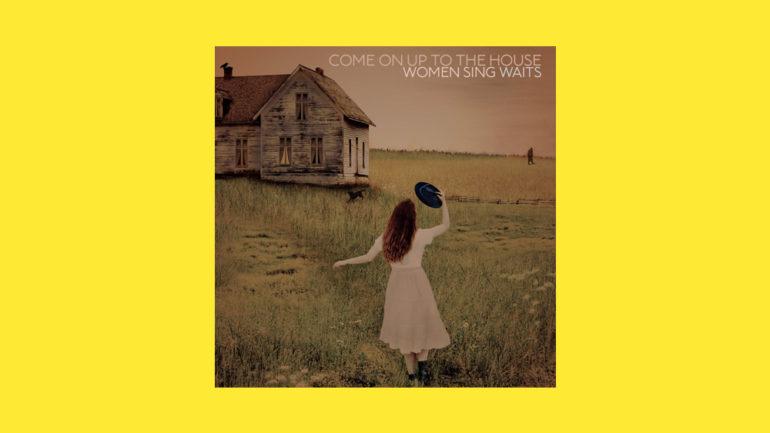Album Review: ‘Come On Up to the House: Women Sing Waits’
By Chris Parker
LOS ANGELES (Variety.com) – The truest testament to a song’s power is how it plays with others. Songs written by the performer are more likely to land in the singer’s stylistic and vocal wheelhouse; take away that crutch to witness the song’s true strength and character. So while Tom Waits’ genius has been beyond dispute for at least a quarter-century, hearing his songs performed by the dozen female artists of “Come On Up to the House: Women Sing Waits” casts new light on their brilliance.
Freed from Waits’ gravelly, way-down-in-the-hole brogue, his female interpreters discover dramatic new shapes and colors within them. Were the songs not almost literally cut from the same cloth, one might worry that the range were too wide, rather than marveling at the adaptability of the songs and their singers.
Waits’ songs are notable for their cast of real people, damaged in keenly observed ways (“broken China voice,” “weeds in your heart”), often lost and/or lonely, walking a thin line between hope and despair. Iris Dement’s voice feels especially well-suited to traffic such emotions. In one album highlight, she turns the loping blues of “House Where Nobody Lives” into a harrowing tears-in-your-beer country ballad as stark and empty as a Kansas horizon, the house’s advancing disrepair and neglect evoking a doomed relationship.
Corinne Bailey Rae also does an exemplary job of making “Jersey Girl” her own, even after the Boss put his imprint on it decades ago. Amplifying the song’s nostalgic ’50s sway, Rae takes the “sha la la” and runs down a well-lit doo-wop alley. She gives Waits’ rough-hewn swagger her own soft-focus coo from the lip of Juliet’s balcony, answering the testosterone-fueled come-on with fake eyelash flitter and skate-away shimmy that’s equally tender and alluring.
Newcomer Angie McMahon makes quite an impression on “Take It With Me,” transforming the world-wizened, Leonard Cohen-like piano meditation on aging into a bright airy alterna-pop number in a vein popular a decade ago (think Regina Spektor, Ingrid Michaelson). The Aussie singer, who released her critically-acclaimed debut “Salt” in July, uses the spare arrangement to her advantage. She lets the silences linger, her mellifluous voice gliding over sustained, intermittent guitar strums, lyrics dropping in and out like station-hopping reflections. When she sings “All broken down by the side of the road, I was never more alive or alone,” you feel both.
Various-artists releases tend to have the discomfiting quality of a series of job interviews. But Waits’ compositions already tend to be so distinct that the different voices feel almost better to properly capture such varied, vividly conceived perspectives.
So even if sisters Shelby Lynne and don’t necessarily deepen the emotional tenor of the much-covered “Ol’ 55,” the way their voices harmonize remains heavenly. Similarly, Patty Griffin doesn’t really need to do much tweaking to Waits’ haunting child-murder tale, “Ruby’s Arms,” but just to open her pipes, which effortlessly port the saddest payload, a first-rate bellhop of ache.
It doesn’t take much work for Aimee Mann to make “Hold On” hers either; something about Mann’s voice naturally conjures the tossed-off intimacy of a coffee shop confession between besties. The talent on the album is so thick, it’s taken this long to mention Roseanne Cash’s hypnotically matter-of-fact “Time.”
Such fine material in the hands of skilled interpreters is a delight. It isn’t even necessary to be familiar with the originals to enjoy this collection. There’s hardly a bad apple in the dozen and the sequencing seems to amplify the songs’ dogged, hopeful mien. If there’s a quibble, it’s that five of the 12 tracks are from “Mule Variations,” which feels like too much given the breadth, quality and depth of Waits’ catalog.
This is such a terrific effort, it would not be surprising if it spawns a raft of imitators. Given the present-day wealth of talented female singers, it seems obvious to reinterpret a variety of feted male artists from a feminine perspective. “Women Sing Waits” sets the idea off to an inspiring start.
Various Artists
“Come On Up to the House: Women Sing Waits”
Dualtone Music

